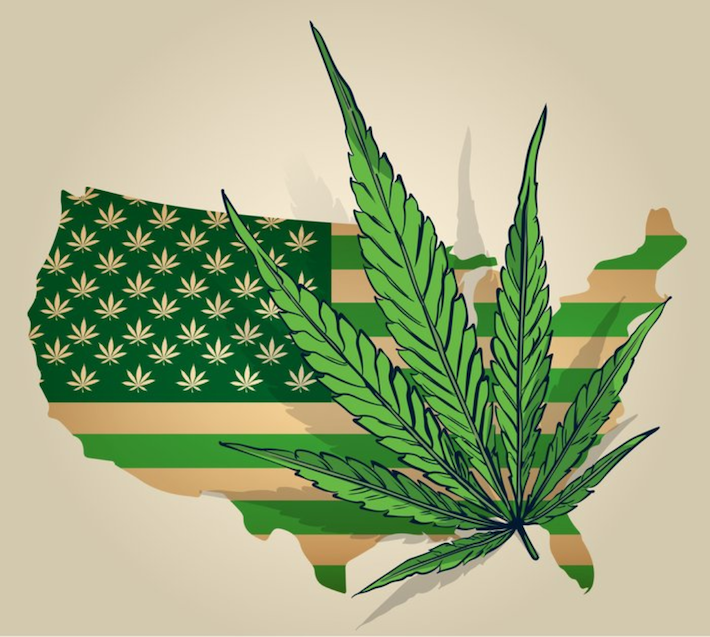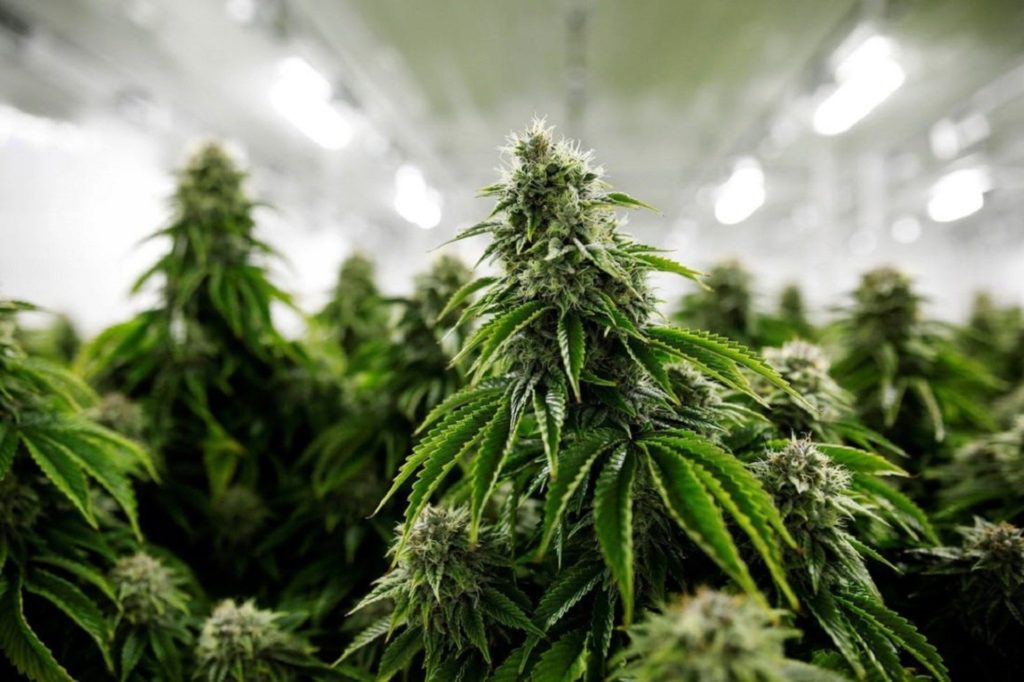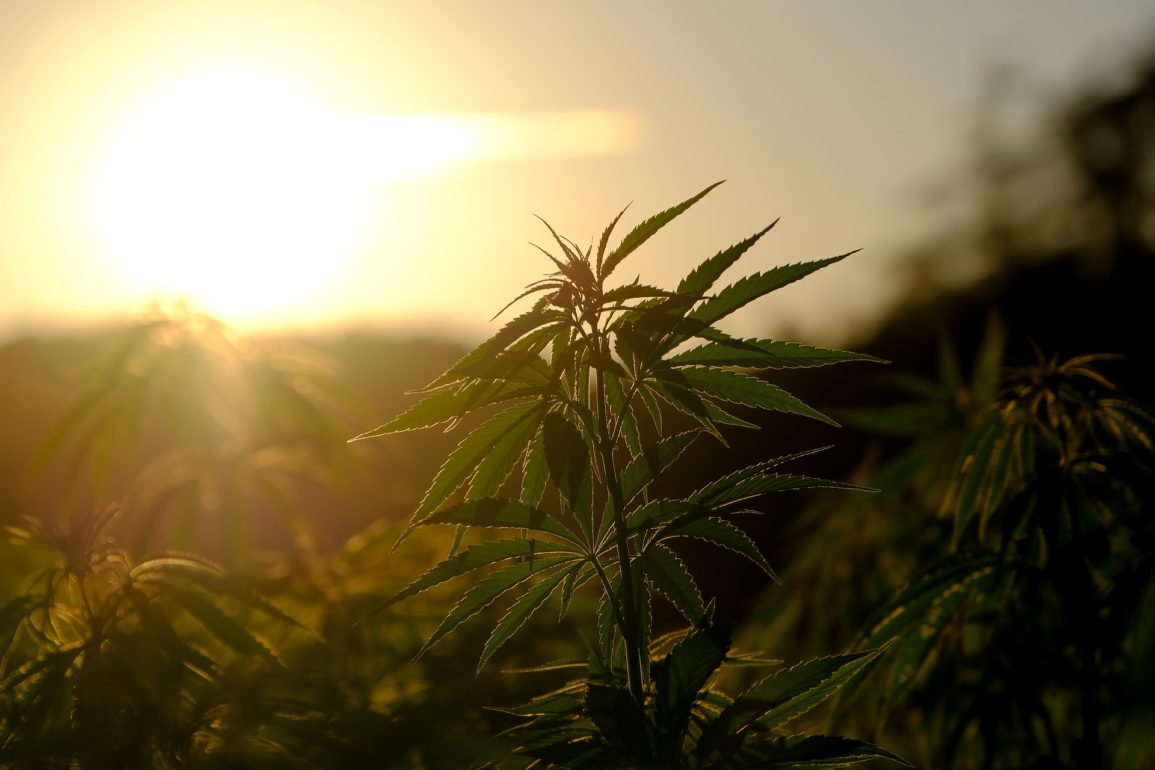TL;DR?
- Two new bills on South Carolina medical cannabis legalization pre-filled and ready to be debated in early 2021: S.150 and H.3361
- Both bills are different versions of the South Carolina Compassionate Care Act, one more restrictive and the other less so
- South Carolina Republican state officials and law enforcement oppose the legalization of medical cannabis, pro-cannabis advocates believe this stance is unjust and money-driven
- South Carolinian voters are generally pro-cannabis (even Republican voters are in favor)
- Cannabis legalization in 2021 is too early to call — we predict a lot of pressure from anti-cannabis state officials
The prospect of medicinal cannabis legalization in South Carolina is on the horizon and it’s uniquely driven by a Republican Senator, something rarely seen in the more conservative southern states.
Lawmakers have pre-filed two bills proposing the legalization of medical cannabis. Both bills will be debated as soon as mid-January 2021.
On December 9th, 2020, Republican Senator Tom Davis (who definitely leans Libertarian) and Representative Bill Herbkersman pre-filed individual bills that would permit cannabis access to seriously ill patients suffering from a range of serious health conditions.
This is the first time Rep. Herbkersman is the lead sponsor in the house.
His motive behind the bill is a personal one. He cites his late brother’s cannabis use during cancer treatment as its moral centerpiece.
It is unacceptable that South Carolinians with serious illnesses have to break the law to alleviate their suffering. My brother [who died of cancer] deserved better. Our friends, family, and neighbors deserve the same options to medicine that are afforded to Americans in 36 other states. Waiting any longer will only add to the suffering that is experienced by those who are plagued with debilitating illnesses.
“I am speaking not only for myself but all South Carolinians who suffer from devastating medical conditions. We should have the choice to use medical cannabis and not suffer through the horrible side effects of taking opioids.”, he added.
Sen. Davis is a seasoned veteran and long-time sponsor of medical cannabis legalization. He believes the bill has a “good chance” of being passed and that “the time has come for lawmakers to get out of the way and allow patients, in consultation with their physicians, to legally and safely access medicinal cannabis”.
South Carolina’s pro-cannabis officials have been trying to legalize medical cannabis for as long as five years with very little success.
These two medical marijuana bills could be the best chance of getting it legalized in the state.
Let’s find out more.
What do the South Carolina cannabis legalization bills look like?

There are two main pre-filed bills: S.150 and H.3361
Both bills are different versions of The South Carolina Compassionate Care Act, a bill that made it as far as the Senate subcommittee but was still unsuccessful.
Here’s a brief lowdown on both:
S.150
- S.150 is the more restrictive bill of the two proposed
- Smoking cannabis flower will remain illegal and prohibited under state law
- High-THC cannabis oils, capsules, and topicals will become available to patients
- Over a limited 14-day period, patients can purchase two oz of cannabis ingestibles, 8.2 grams of cannabis concentrates designed for vaporizing/dabbing, and four grams of cannabis topicals
- Doctors and healthcare practitioners are allowed to adjust these measurements on a case-by-case basis
H.3361
- H. 3361 is the least restrictive of the two proposed
- Smoking cannabis flower is permitted (smoking paraphernalia is allowed too)
- Over a limited 14-day period, patients can purchase two ounces of dried cannabis flower or two ounces of cannabis topicals/edibles
The qualifying conditions are comprehensive
Both bills outline the qualifying conditions for patients to receive medical cannabis. The list of conditions is narrow compared to other states but still enough for many South Carolina patients to be eligible.
The list of qualifying conditions are as follows:
- Autism — cannabis may reduce behavioral symptoms of autism
- Cachexia (wasting syndrome) — cannabis consumption may improve appetite, food and caloric intake, body fat level, mood, and overall quality of life in patients with cachexia
- Cancer — cannabis is known to reduce pain caused by cancer, as well as decrease nausea and vomiting symptoms as a result of chemotherapy
- Crohn’s disease — cannabis is said to improve quality of life, pain, and appetite in patients with Crohn’s disease (and other inflammatory bowel diseases)
- Chronic pain (H.3361 only) — some compelling research shows cannabis’ ability to tackle of chronic pain and help manage its symptoms
- Glaucoma — cannabis compounds (CBD and THC) are said to help with symptoms of glaucoma
- Multiple sclerosis (MS) — cannabis reduces muscle spasticity and pain related to MS
- Neurological disorders (epilepsy, etc) — many studies relating to cannabis effects on epilepsy, Parkinson’s disease, etc, showed very promising results (especially epilepsy)
- Post-traumatic stress disorder — cannabis may have acute alleviatory qualities against PTSD symptoms (flashbacks, anxiety, etc)
- Conditions causing persistent, painful, and uncontrollable muscle spasms
- Conditions where opiates can be prescribed as a treatment
- Any condition a doctor is qualified to treat (H.3361 only)
If successful, a cannabis advisory board will be established. The board will review certain conditions not on the list and add them if it deems necessary and beneficial.
How does South Carolina view medical cannabis legalization?
South Carolina doesn’t hold cannabis in high esteem. There’s no doubt about it. Recreational and medical use is strictly prohibited for the most part, though hemp-derived cannabidiol (CBD) is legal.
The punishments for cannabis possession, sale, distribution, and cultivation are harsh. If you’re caught in possession of 1 oz or less and it’s your first offense, you can face a $200 fine or up to 30 days in prison. If it’s a subsequent offense, you’re likely to face a $2,000 fine or a year in prison.
Sale, distribution, and cultivation punishments range between $2,000-$200,000 fines or 5-25 years in prison (depending on how much you sell, distribute, or cultivate).
While these punishments aren’t the most severe compared to other states (here’s lookin’ at you, Arizona, which ironically also just became the 13th State to fully legalize), they’re enough to put many people off trying cannabis. No-one wants a simple misdemeanor charge on their record, no matter how beneficial cannabis is for your mind and body.
“Julian’s Law” showed a softer side to South Carolina’s cannabis stance
In 2014, legislation S1035/H4803 (otherwise known as “Julian’s Law”) was signed by Republican Governor Nikki Haley, allowing children with rare and severe forms of epilepsy access to prescription CBD medications.
By law, the CBD medication must have at least 15% CBD and no more than 0.9% tetrahydrocannabinol (THC).
This is the closest the state has gotten to medical cannabis legalization.
State officials are quick to oppose the use of (and access to) medical cannabis

The state Attorney General Alan Wilson (R) and state law enforcement have openly opposed the Act.
In a 2019 press conference, Wilson described cannabis as “the most dangerous drug in the world because it’s the most misunderstood drug”.
It is the drug that teaches our children about all other drugs. One in six children who use it will become addicted to marijuana. Consider the following words used by marijuana users to describe the state of being high. They use words like ‘stoned’, ‘high’, ‘wasted’, ‘baked’, ‘fried’, ‘cooked’…’doped-faced’, ‘blissed’, ‘blunted’, ‘blasted’, ‘danked’, ‘stupid’, ‘wrecked’
“Are these consistent with the words that describe a medicine?”, he asks.
For the record, nothing about Wilson’s statement is grounded in science. There’s no substantial evidence to suggest cannabis is a gateway drug. The words he used to describe a cannabis high aren’t too dissimilar to how users describe pharma-led oxycontin intoxication.
Unsurprisingly, the chief of South Carolina’s law enforcement, Mark Keel, also shares Wilson’s anti-medical cannabis sentiments.
Speaking at Aiken Rotary Club, Chief Keel explained how “passionate” he is about opposing medical cannabis, stating “the first thing want you to know is that marijuana is not a medicine”
“Proponents of this bill talk about how restrictive it is, but ladies and gentlemen, I promise you, this bill is not a strict bill…It allows you to get two ounces of marijuana, which is roughly 120 marijuana cigarettes, every 14 days. That’s about eight (marijuana cigarettes) a day. You think maybe it (marijuana) is good for pain, and you probably won’t be in any pain if you smoke eight a day.”
Republican Governor Henry McMaster has also vowed to veto any medical cannabis decriminalization/legalization bill, believing it would be “a detriment to society and to law enforcement”.
Cannabis activists believe South Carolina’s stance on medical cannabis is unjust
Cannabis activists believe South Carolina law enforcement’s to legalize—or, at least, decriminalize—medical marijuana comes down to money, believing it “won’t give up the millions of dollars it collects from alleged “drug-related” civil asset forfeitures.”
Law enforcement’s attack on a proposed medical cannabis bill is ruthless and borderline criminal. While officers fight to keep their Civil Asset Forfeiture program, veterans with PTSD commit suicide, epileptic children continue to suffer and adults in pain are forced to turn to opiates.
Suicide in South Carolina, for example, has been on the up over the past decade. In 2018, 15.6 people out of 100,000 South Carolinians committed suicide.
It’s unknown if the cause of suicide is due to PTSD but 8% of Americans who experience trauma will develop PTSD at some point in their lives (3.5% of people will have PTSD in any given year).
Research on cannabis for PTSD is promising. One study conducted by Washington State University suggests cannabis may reduce short-term PTSD symptoms by more than half.
Luckily, voters seem to be more pro-cannabis than state officials
In 2018, the results from a Benchmark Research poll showed 72% of South Carolinians were in favor of legalizing medical cannabis. Surprisingly, 63% identified as Republican.
This poll, though small in size (400 participants), shows a diverse group of people who believe medical cannabis should be legalized and don’t represent the strong views held by South Carolina’s Republican state officials.
Speaking with WMBF News, Judy Ghanem, the state director of Outreach for Compassionate South Carolina, hopes this poll will sway state lawmakers into making medical cannabis accessible to those who need it.
“After all, the legislators are voted into office and their job is to represent the people. Now that it’s definitive that the majority of the people do support medical cannabis I do think that they’re going to be able to look at it with fresh eyes”, she stated.
Will medical cannabis be legalized in South Carolina in 2021?

South Carolina lives in the dark ages when it comes to cannabis legalization, be it recreationally or medicinally. State officials and law enforcement are ultra-conservative when it comes to the use and access of any cannabis (aside from hemp-derived CBD products).
We believe both these bills will face an uphill battle similar to when it was proposed in 2019. Republican state officials, law enforcement, and medical professionals are vehemently against medical cannabis across the board.
We do, however, remain optimistic and we hope rational heads prevail in South Carolina.


